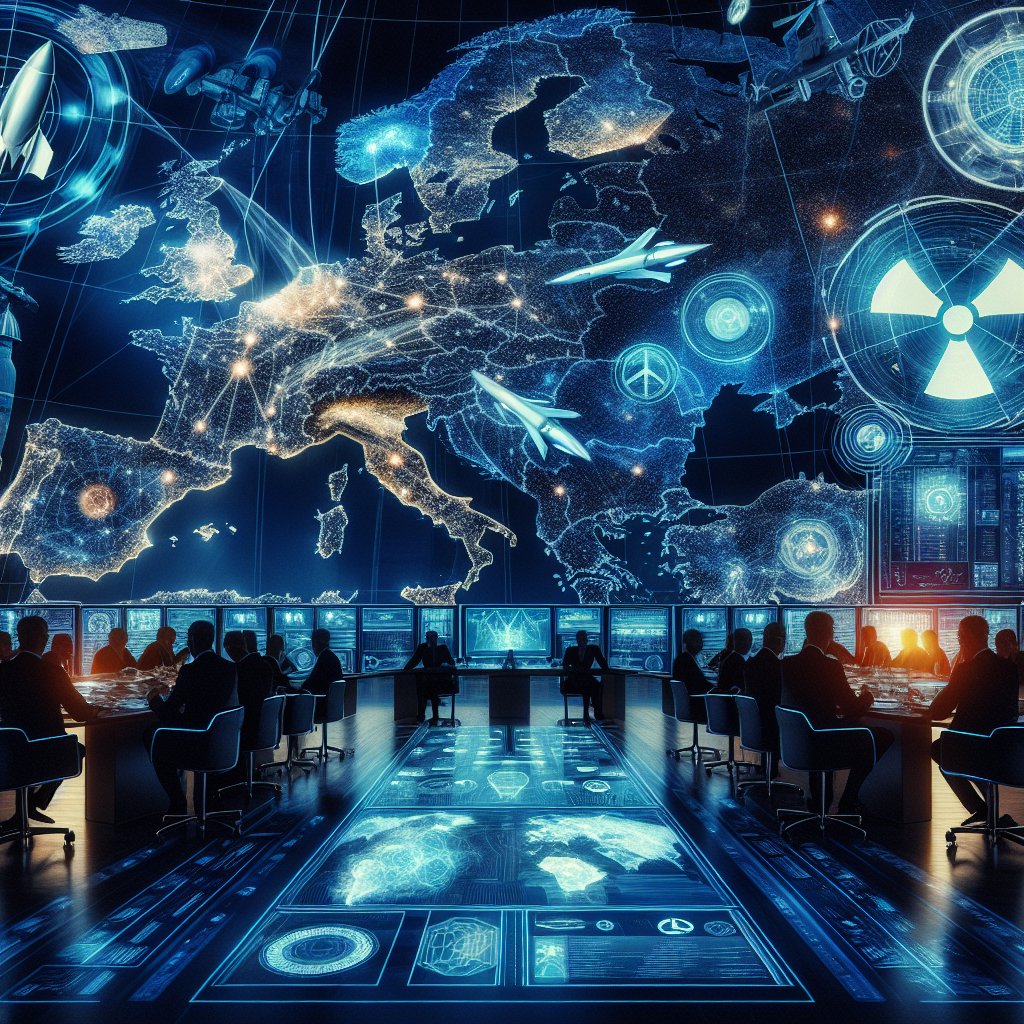Image created by AI
The Looming Threat of Nuclear Anarchy: The Essential Role of Diplomacy in Maintaining Peace
In the complex geopolitical landscape of contemporary Europe, warnings about major war resonate with an intensity not heard in decades. Rumors of Russia placing nuclear weapons in space, the deployment of hypersonic missiles and drones in Ukraine, and the devastating scenes witnessed in Gaza are setting off alarm bells internationally.
The situation in Europe is particularly precarious, especially with nations like Finland, Sweden, and Estonia expressing concern over the potential for a conflict of immense proportions. The stakes are higher than ever, with the horrors of nuclear warfare—a specter thought to have been buried with the Cold War—making a terrifying comeback to the forefront of global consciousness.
This stark scenario is not just a contest of military might; it finds its roots in political arrogance, the illusion of power, and a denial of reality that blindsides logic. The involved nations, both NATO allies and Russia, harbor a misguided belief that they would survive a nuclear exchange, whether limited or full-scale. This belief fundamentally misjudges the cataclysmic implications of nuclear weapons, where nobody wins and the price of miscalculation is the annihilation of all we hold dear.
Whereas conventional confrontations are measured in lives lost and territories gained or surrendered, a nuclear conflict is measured in terms of human civilization's ability to survive. Cold War-era strategies and doctrines are insufficient guides in an era where a single mistake could ignite a global atomic inferno.
The combatants’ readiness to deploy nuclear weapons that could incinerate forces on land, at sea, and in the air betrays a harrowing disregard for human life and the continuation of civilization. The question that surfaces, then, is stark in its simplicity: Who will tend to the survivors, when today we are already stretched thin in our capacity to provide basic care in the face of a global pandemic?
The COVID-19 pandemic has been a descriptive precursor to the chaos and uncertainty that could stem from a nuclear incident. If the virus has stretched our global resources to their limits, the effects of nuclear radiation would be catastrophic on an unfathomable scale, potentially dwarfing the pandemic in terms of global impact.
In the face of such existential threats, the saner voices of the world call for diplomacy to take center stage. It’s apparent that seasoned diplomats, not aggressive political hawks, hold the key to de-escalating tensions and finding a path to peace. Diplomacy stands as the final bulwark against descending into nuclear anarchy, ensuring that sovereign nations can coexist without the specter of mutual destruction hanging over them.
Direct talks between the nuclear-armed giants, dialogues devoid of the politics of dominance, offer a glimmer of hope. The established precedence of arms control dialogues, strategic arms reduction treaties, and perseverance of diplomacy during the Cold War provide historical testament to the effectiveness of negotiation over confrontation.
The world now watches with bated breath, hoping that political sanity will prevail over the allure of nuclear dominance. Only through genuine diplomatic efforts can there be hope for a peaceful resolution to an otherwise unthinkable outcome. For the sake of generations to come, those who have the power to avert crisis must remember: diplomacy is the one instrument that can prevent the world from sliding into anarchy, born out of nuclear madness.










